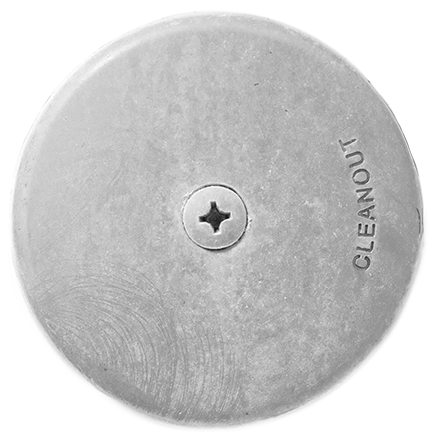Noxzema
By Rob Cook
Women who had no idea what I looked like began calling each other in 1989. That was the kind of poetry I used on the woman from the novel I read.
Her name was just “the woman” and the novel was called Noxzema and it was edited by a group of women named Cathy who survived the terrors of a canceled community college literary arts journal.
I read the novel every day for a week.
I admired the novel because a teacher on page seventy reminded me of Mrs. Sweeney, my ninth grade English teacher. We both hate Mrs. Sweeney, I thought. Good.
I placed a personal ad on a telephone chat line. It stated: “I’m in search of the woman from the novel.” Somehow, within twenty minutes, I had a message in my voice mail. The woman from the novel responded.
In the novel a young man, populated by acne and assorted crumbs and sugar creatures, applies Noxzema to his face every morning and then places a personal ad and sits by the phone waiting for something to happen: perhaps the mailman will find out where I live today. Maybe it will finally get cold outside. I like the cold, the way it moves the sky a little farther away. Maybe if the sky isn’t so obvious with its stupid blue clouds the woman will know where I live and also that I’m waiting for her and will continue waiting until the day the sun finally decides to stay.
So when she called it didn’t surprise me. It happened just the way I’d read it would. We told each other certain things about our bodies, the movies we enjoyed, the music we loved, the blandest of details really.
And then the day arrived. I thought I should stay home, but I was going to meet the woman from the novel. If she had been a Stacy or a Glenda or a Jennifer I might have stayed in and cooked spaghetti-o’s. So one late afternoon, in the depths of a diner at the far end of the snow, I watched a chicken potpie curdling on my plate. The woman, who sat across from me, seemed to be holding back a more deliberate form of curdling.
Arriving three hours late in her blue Trans-Am, heavy-set and red-headed, the woman who did not look like “the woman” at all, but like she could have been Eddie Trunk’s least favorite singer, walked over to me, shrugged her shoulders suggestively, and led the way inside.
I followed her feet, which also seemed to move suggestively, her white go-go boots moving the way they did. At the table, though, her eyes expressed the disappointment of a person who experiences only one kind of day.
I told her I liked Noxzema, that the book was as good as the cream, that it smelled like the house of the people who carried winter into the woods every December in little baskets.
“I only modeled for the cover. I’m not the protagonist of the book. I’m not the woman you’re looking for.”
But she had already told me that it was she who healed the man of his continuous sitting by the phone, and that it was she who encouraged him, finally, to go outside.
“It’s very important to me that you be able to pay for this entire date,” she said.
I waited for her to look at me, but she didn’t. She just stared out the window into the parking lot. Our faces in profile were identical: two people from two separate homes in two separate towns at the fringes of New Jersey where chickens grew in the soothing heat of hairdryers.
“Do the parked cars look romantic to you? I asked.
She turned her head even farther away.
“Do you ever think the candles wish they were cold?” I asked, knowing she liked the kind of poetry composed by cults of not-at-all-cute men.
She tried to flag down the waiter who walked by without acknowledging us.
“If you keep speaking that way, you will disappear. No one respects poetry,” she said in a manner that was nothing like dialogue.
I could smell the Noxzema dying on my skin, so I took off my shoes to camouflage the smell. It’s very bad when a woman can go to her friends and tell them how bad her date smelled.
“Is your food at least tolerable?” I said, this time without bothering to lift my voice at the end.
The way the clouds race across the sky will never become outdated. The sunlight will not age. Rain will always be the sound a deer makes falling asleep. Mountains will get smaller, the days a little dimmer, school receding a little more into the distance.
The woman told me this as a way of not drifting away herself. As a way of letting me know anyone could write poetry. Anyone at all. And without passion, without caring the slightest.
“You seem younger than me,” she said with the arrogance of a flower left by the road since the end of September, though I was 25 and she was 20.
“I wanted to meet Jon Bon Jovi. Why aren’t you Jon Bon Jovi?” she asked, not at all rhetorically.
All I told her over the phone was that my hair reached farther than anyone in that band. I told her I didn’t look like him. It seemed plain enough, what I said, and I used all the correct words and natural harmonics.
"I only wanted to meet someone who could enjoy sitting at a table while the food admires the way we grow quiet together,” I said.
I took out my copy of the novel Noxzema, but did not ask her to sign it.
Then a song we both liked started playing. She found a safe place in the singer’s voice, and I kept looking over my shoulder to the beginning of the song when there was still a faint smudge of light in the sky.
Rob Cook’s latest book is The Undermining of the Democratic Club (Spuyten Duyvil, 2014). His next two tomes, tentatively titled More of the Same Volume One and More of the Same Volume Two, will be sallied forth by the publishing arm of We Want To Be Left Alone Editions sometime before the Apocalypse, which, according to Keith Brennan of Lafayette, New Jersey, is imminent. In addition to having his longest ever poem accepted recently by Toad Suck Review, he is dying of a horrible disease. He remains an enemy of Prednisone Nation, NYU Langone. (Updated September 2015)





































